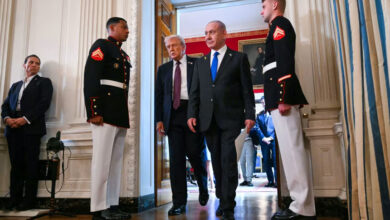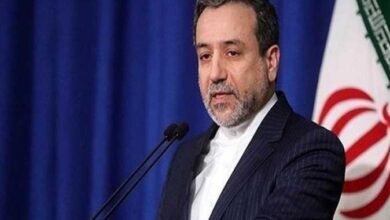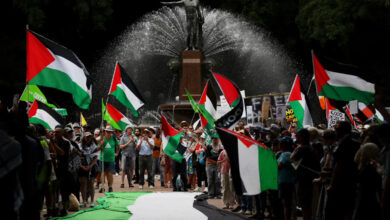For the first time in years, nine-year-old Sherif and his friend Mahmoud, residents of the village of Damtu, are able to play freely outside their house, which is located across from the tomb of Abu Hasira, a 19th-century Jewish rabbi, after years of deprivation due to security orders.
Sherif, Mahmoud and all of the village residents were finally able to enter the area around the mausoleum without fear. Previously, anyone who tried to enter the area would be beaten, humiliated or imprisoned for weeks because former Interior Minister Habib al-Adly’s security forces had turned the area around the shrine into a military barracks, forbidding anyone from approaching it.
The festival, scheduled for 9 to 10 January, is held on the annual anniversary of the death of Abu Hasira, whose mausoleum is located in the village of Damtu outside Damanhour. A number of political groups in Egypt announced Monday that they plan to protest at the Abu Hasira festival.
The usual security measures were absent around the tomb, which is located on top of the small village’s highest hill. Only one police vehicle with five policemen can now be found at the mausoleum, and for the first time in years, dozens of village residents are visiting the shrine.
Abu Hasira was born in Morocco and, according to Jewish lore, the ship that was carrying him to Palestine sank. Abu Hasira floated on a straw mat that eventually landed on Syrian shores. The rabbi, according to Jewish tradition, went from Syria to Palestine and then on to Egypt.
He died in Damtu in 1880. Every year, thousands of Jews come to celebrate the anniversary of his death.
Al-Masry Al-Youm, together with a number of village residents and activists from the Beheira Governorate, visited the tomb, which Jews failed to visit for the first time after activists declared they would form a human shield to prevent any Israelis from setting foot in the area.
Abu Hasira’s tomb lies in the center of Damtu. It is located on a 5-meter-high hill, where a closed shrine encloses the rabbi’s tomb, and three other tombs, which Jews say belong to his grandchildren. Abu Hasira’s tomb is covered with a large piece of black cloth embossed with Hebrew phrases embroidered with gold thread.
The room that includes the mausoleum is 30 square meters in area and includes three oil paintings of the Jewish rabbi, a marble plaque written in Hebrew at the entrance, and a group of small coin-like pieces placed on top of one of the adjacent tombs. It also contains a small, broken wooden painting and nine wooden windows, most which have been broken as a result of rocks being thrown at them.
In 2009, Israeli reports indicated that ousted President Hosni Mubarak agreed to a request on behalf of Israeli Prime Minister Benjamin Netanyahu to allow hundreds of Israelis to celebrate the festival.
After Egypt and Israel signed the Camp David Accords in 1979, Israel requested the cooperation of the Egyptian security authorities in the organization of annual official trips to the tomb for the festival, which last for a week.
After the revolution, a group of people tried to demolish the tomb, but village residents stopped them.
“We are against the tomb, but at the same time we are against demolishing it in such a manner. The revolution didn’t erupt to demolish such tomb,” said Mohamed Fawzym, one of Damtu’s residents.
Umm Abadam, a 50-year-old woman, might be the only resident suffering from the festival's cancellation. She benefited from being the closet neighbor to the tomb.
She used to earn money cooking food for the visitors of the tomb.
“What were [visitors] doing? I used to sell to them. In the beginning, they bought cows and goats from the village. People from Tanta used to come here and sell them cloth. But the number of visitors has decreased, and I was forced by security to not sell them anything,” Umm Abadam told Al-Masry Al-Youm.
Bassiony Mohamed, another village resident, shed light on another aspect.
“We had suffered a lot from the visits of Jews. Secret police were all over the place. During the festival, we weren’t able to move freely. The secret police were summoning the people who live close to the tomb and threatening them if something bad happens at the festival,” Mohamed said.




